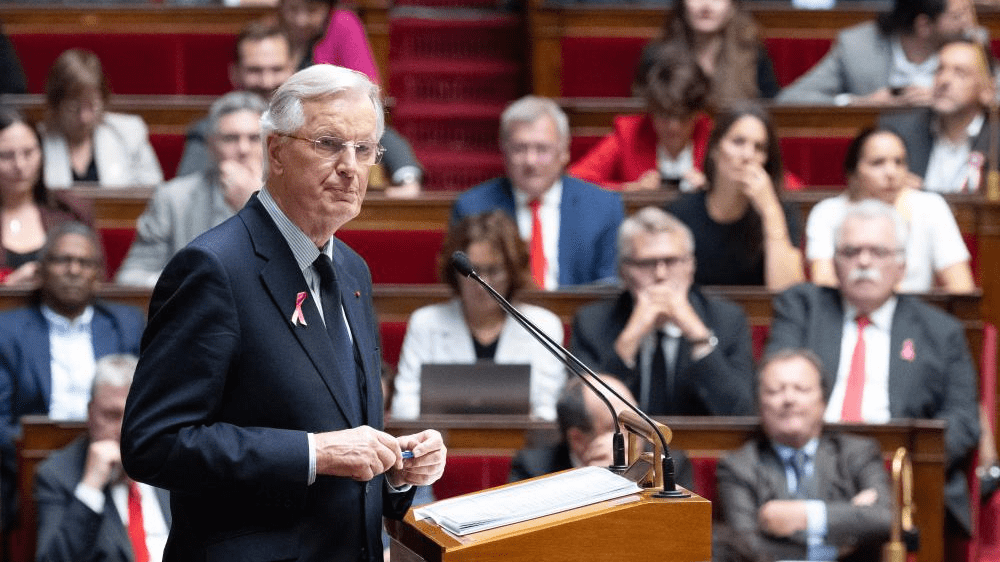French Prime Minister Michel Barnier delivers a 1.5-hour speech to the National Assembly, detailing his government's key priorities, including reducing the public deficit, reforming the immigration system and pension policy.
Barnier has set an ambitious target for the French public deficit, which he wants to reduce to 5 % of gross domestic product (GDP) in 2025 from 6 % this year and further to 3 % in 2029.
To achieve this, Barnier has committed to reducing public spending and introducing a "more efficient" public spending system.
He also called for an additional tax effort in which large and very large companies that make significant profits should contribute more "without jeopardising the competitiveness" of France.
He added that the "exceptional allowance" would also be for the richest French people.
Following the murder of a young student by an illegal immigrant who was about to be deported from France, Barnier acknowledged in the National Assembly that France's migration and integration policy was no longer being managed "satisfactorily".
Barnier said his government would consider tightening up the issuance of visas for countries that are reluctant to issue laissez-passer for the repatriation of their deported citizens.
In addition, he proposed measures to facilitate the exceptional extension of detention of undocumented migrants awaiting deportation and to improve enforcement of the obligation to leave French territory (OQTF).
Barnier also announced policies on energy, housing and possible further reforms in the area of pensions.
In a speech to a more divided than ever lower house of parliament, Barnier promised to govern France with a "new method" that includes "listening, respect and dialogue".
As Prime Minister without an absolute majority in the National Assembly, Barnier called on the opposition to make "dialogue and a culture of compromise" a principle of governance.
CMG/ gnews - RoZ



